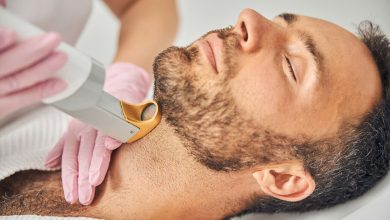What Do You Need To Know About COVID Antibody Test

Restrictions due to COVID-19 are being relaxed across the country as most people have been vaccinated. Although there is an evident decline in cases of people infected with the SARS-CoV-2 virus, the demand for covid antibody testing in Houston and elsewhere is still rising. While the test is typically taken after an individual recovers from coronavirus, many, particularly those who travel a lot, take it before the vaccination. Many also consider the test after the vaccination to check its effectiveness and ensure their body is immune to mutant viral strains. If you also have the same thought in your mind, we have answered a few commonly asked questions here.
What are antibodies?
Antibodies are our immune system’s specialized proteins that help our body fight bacteria, viruses, and other foreign elements, potential enough to make us sick and cause illness. When a person gets infected with coronavirus, the immune system immediately recognizes it and develops antibodies against it. This way, the body protects against a virus, recognizing it as a foreign substance, and triggers the immune system to fight it. In short, an individual’s body protects against future infections after developing antibodies.
What is a COVID antibody test?
An antibody test detects antibodies in the body. It determines whether or not an individual has been exposed to a virus, for instance, coronavirus, and has recovered from the disease, illness, or infection. Antibodies are typically present in the body up to eight to eleven days after infection. The test measures two proteins—IgG and IgM—created by the immune system, which aid in evaluating the level of protection against the virus or how strong the individual’s immune system is.
Many people often confuse COVID antibody tests with diagnostic tests. Polymerase chain reaction or PCR is a diagnostic test that detects if viral genetic material is present or not in an individual’s saliva or mucus. So, if you have been previously infected with coronavirus disease or came into contact with an infected person recently, taking aCOVID antibody test with fast results is recommended.
What does a COVID antibody test signify?
A healthcare professional performs an antibody test by drawing a blood sample, which pathologists later examine in laboratories to determine if antibodies to the SARS-CoV-2 virus are present in an individual’s body or not. A positive result indicates the body’s immune system has previously fought off the coronavirus. A negative result, on the other hand, signifies antibodies against COVID-19 are not present in the blood, or there are not present in sufficient amounts to diagnose whether the individual was earlier exposed or infected.
However, the antibody test doesn’t determine an individual’s level of immunity against the SARS-CoV-2 virus. A negative diagnostic test report is imperative when traveling to other states or countries, regardless of a COVID-19 vaccination.
Does a COVID-19 vaccination produce antibodies in the body?
A COVID-19 vaccine exposes the immune system to an antigen, resembling a piece of the virus’ spike protein responsible for causing coronavirus disease and stimulates the immune cells to develop antibodies. Despite the vaccination, individuals with a weak immune system have a low ability to develop immunity against the virus. Consulting a primary care provider is recommended to decide whether a person should consider the third dose of vaccine or not for a strong immune response. If you are unsure if you should get the third dose or not, book an at-home COVID antibody test in TX and meet your healthcare provider.



